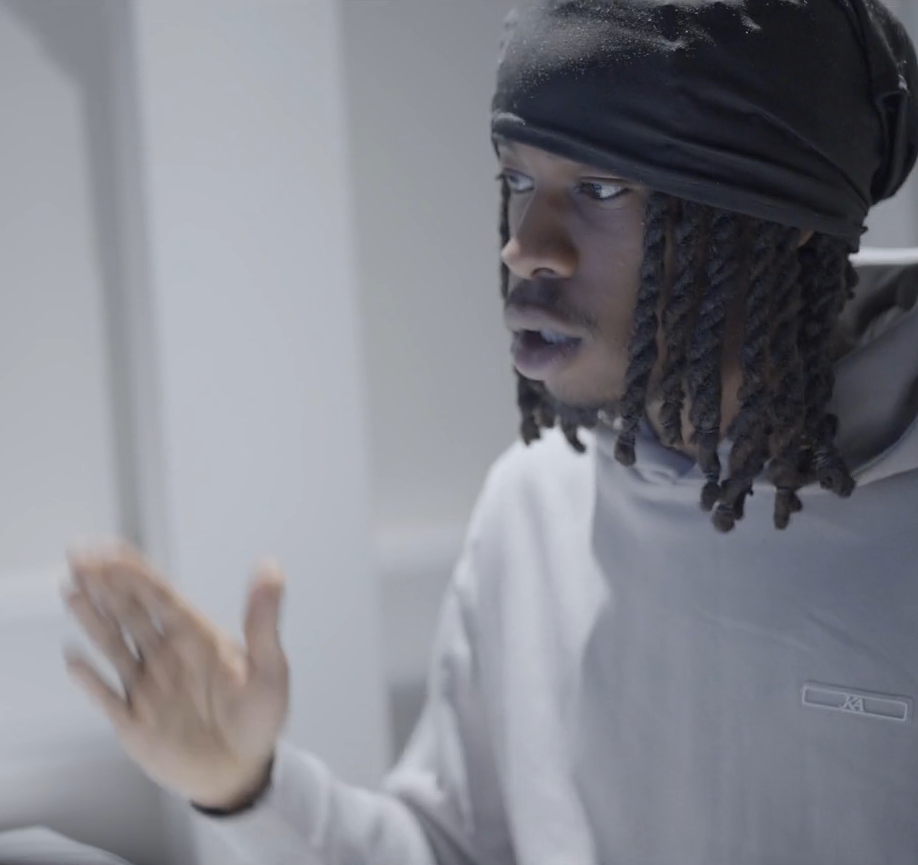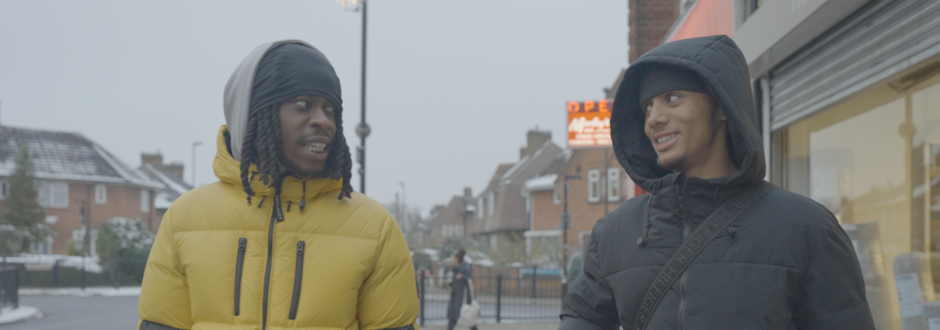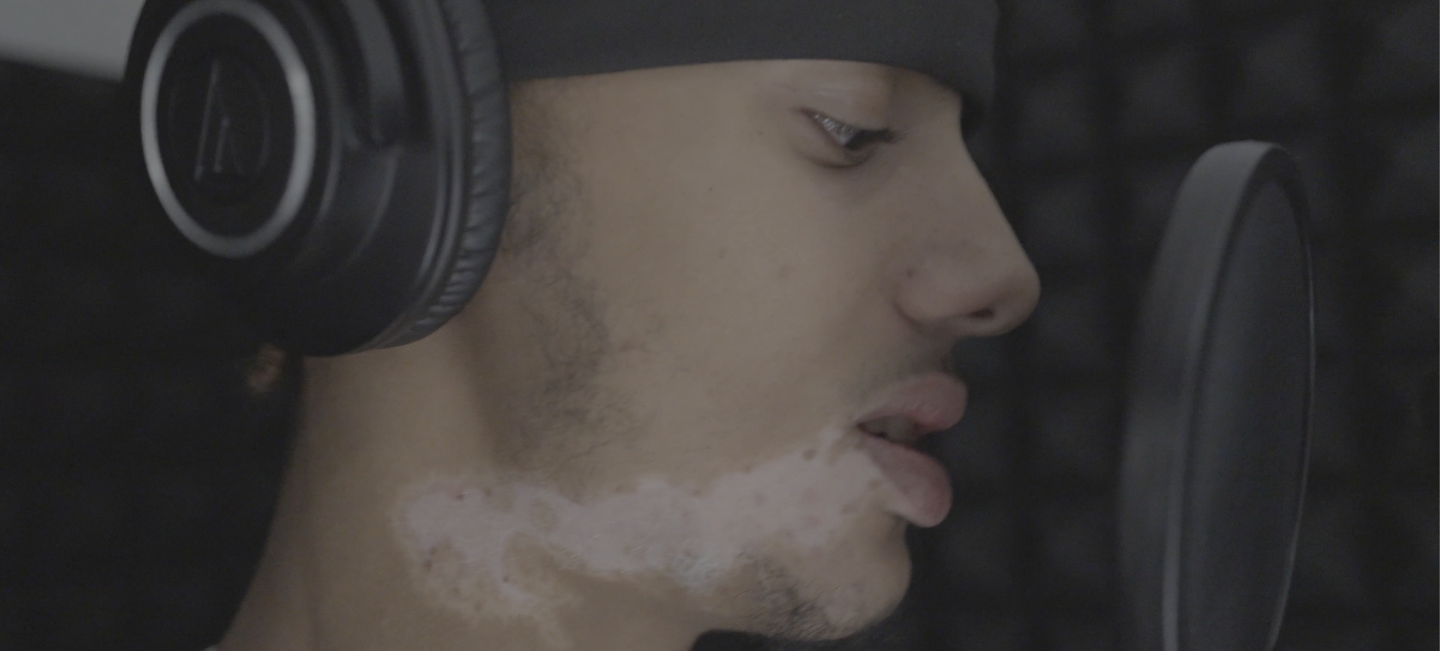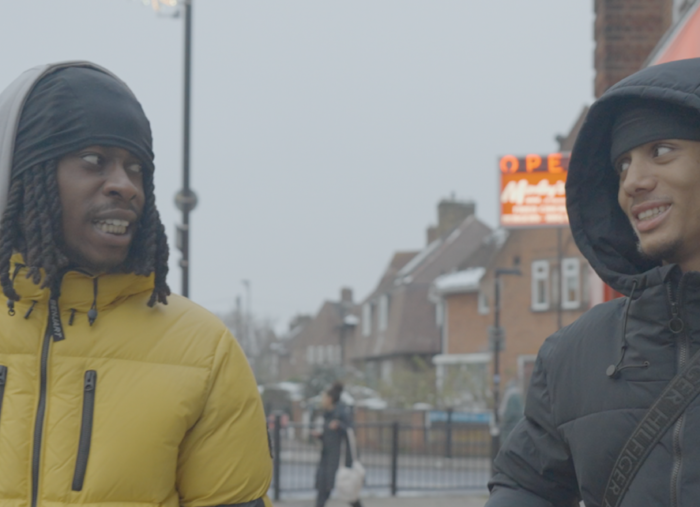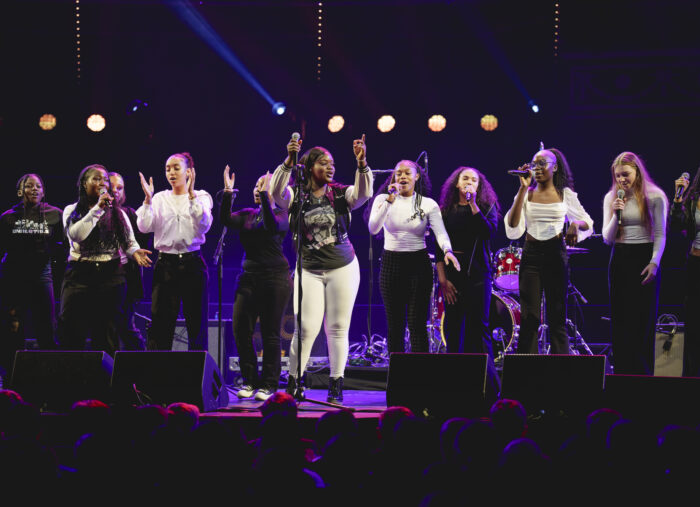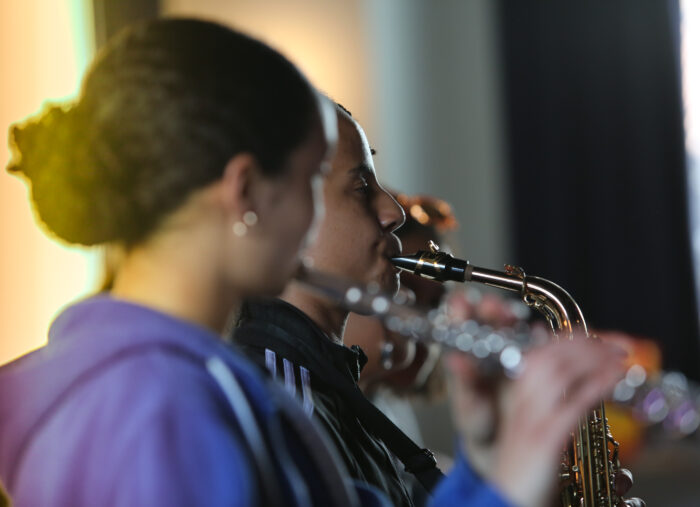There’s been a shocking 60% increase in children and young people experiencing mental health problems since 2017.
We believe young people have the solutions to this crisis, and to truly understand and help young people’s mental health, we need to work closely with those young people, empowering them to have a voice and be heard.
“I know there’s been times when I’ve been in a dark place in my head, there’s been no light, and then I make music and I’m good again.”

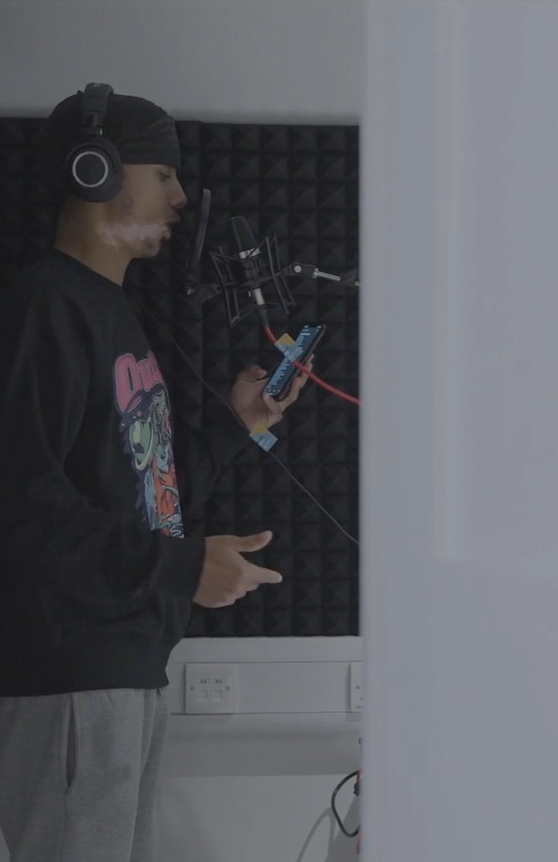
A Big Conversation is a youth-led research project that brought together Lewisham partners: Lewisham Music, The Albany, SOUNDS LiKE CHAOS, Heart n Soul, and Lewisham Youth Theatre, in Lewisham’s London Borough of Culture year to understand the role arts and creativity play in the mental health of young people.
As part of the project we trained, supported and paid an epic team of Young Producers to take the lead and develop a large-scale conversation about mental health and creativity.
Front Line Young Minds
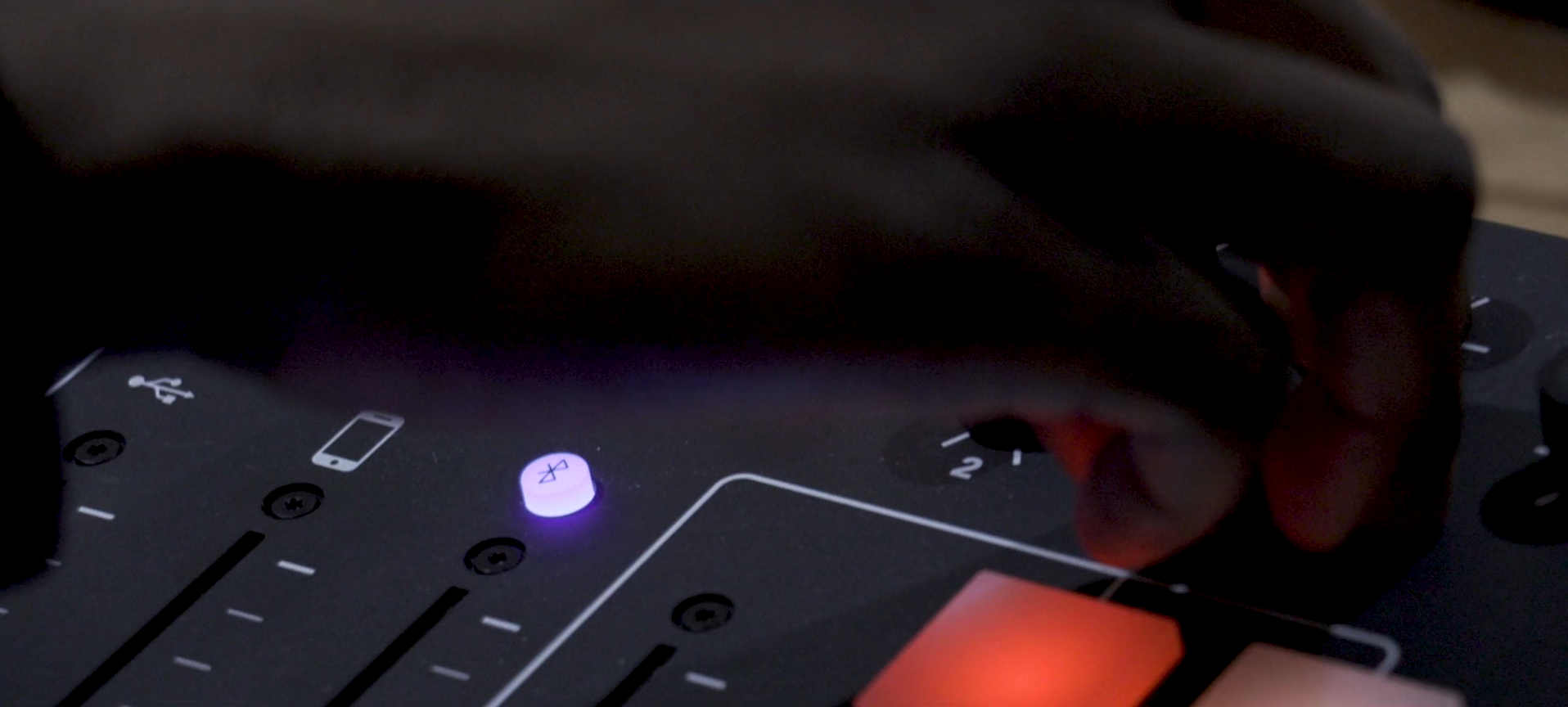
Emerging from the project came Front Line Young Minds, our award-winning youth-led podcast series taking a close look at topics including, the role music plays in supporting young people’s mental health, the real cost of working within music as a woman, and the role music plays in shaping young people’s actions, and much more!
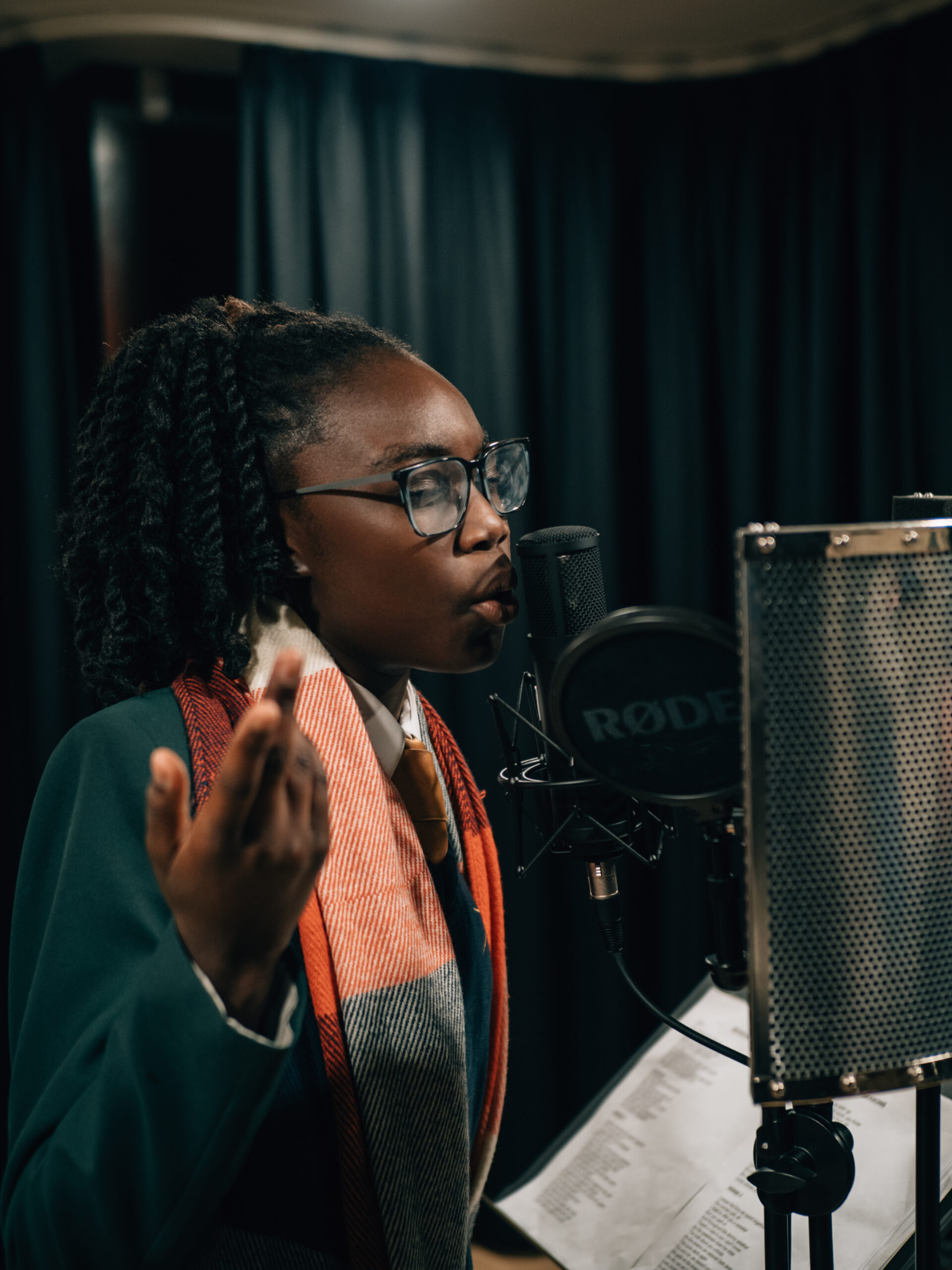
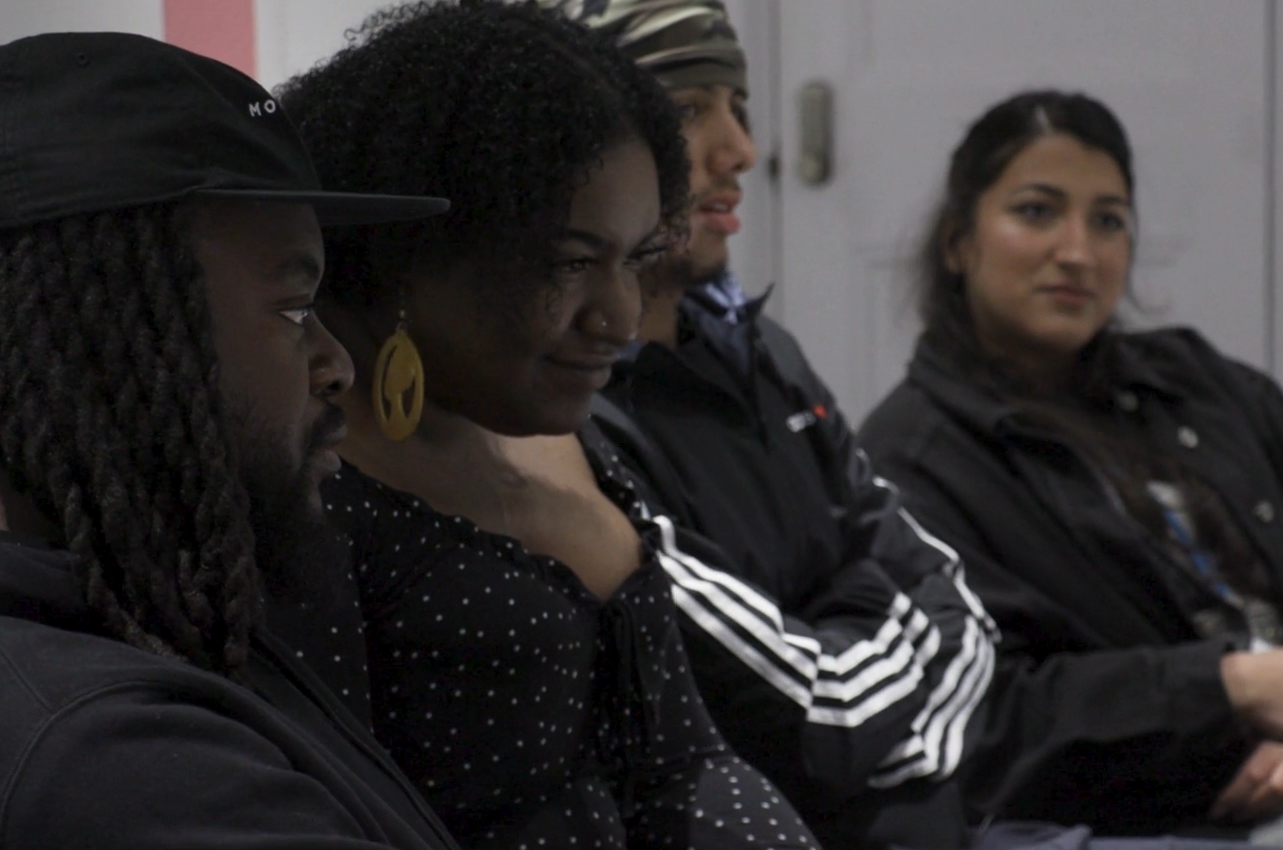
Have a watch of the short and long versions of the film about the project below and click the button to listen to the full podcast series.
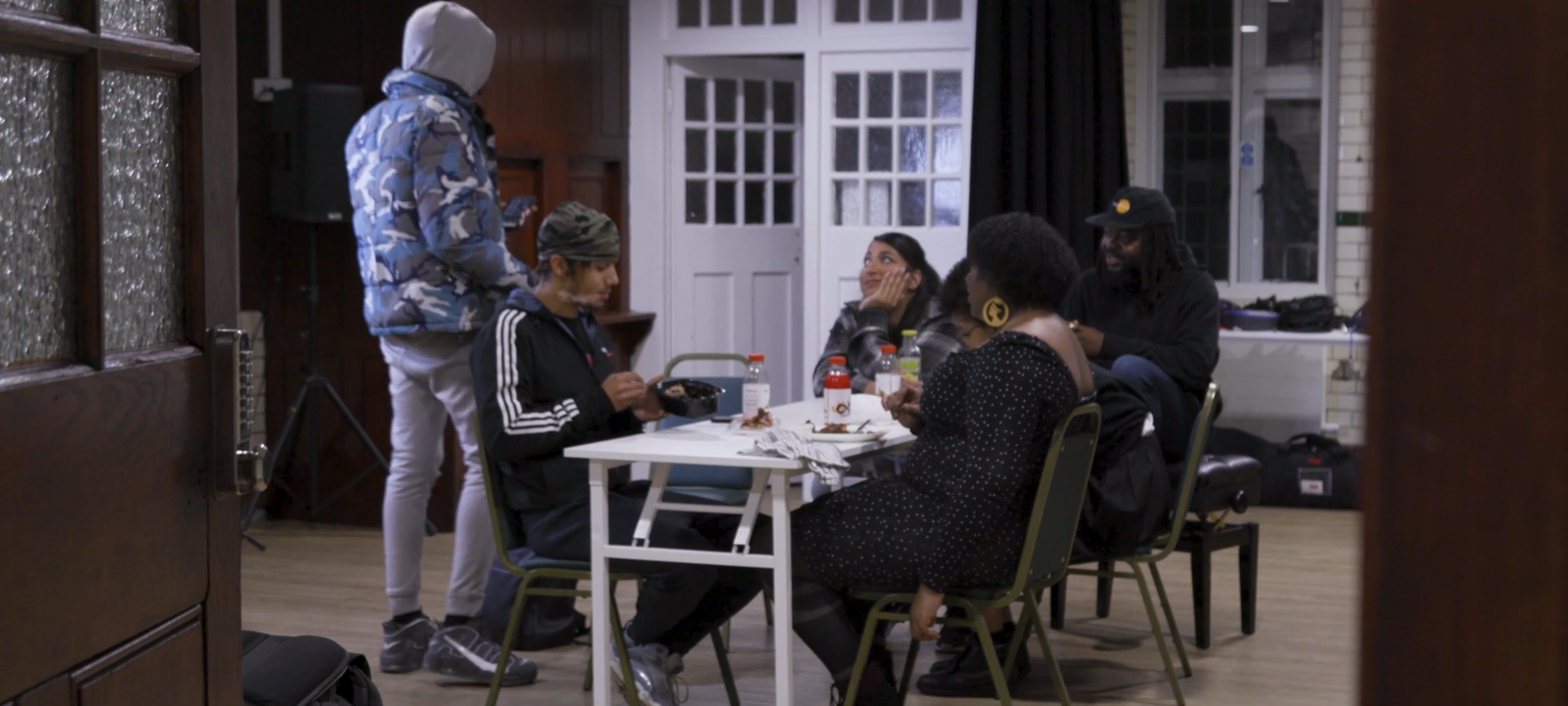
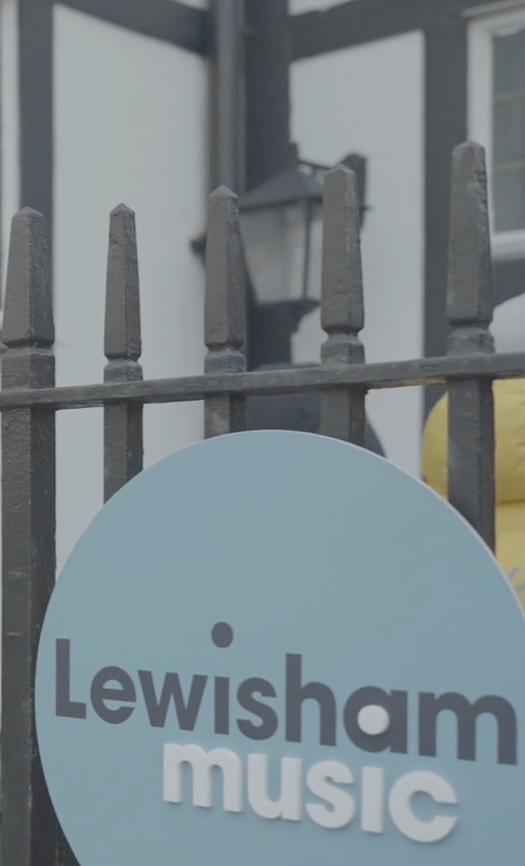
During the year-long project we worked closely with Georgia Attlesey of Pudding in an action learning research project which sought to better understand the impact of creativity and culture on the mental health and wellbeing of children and young people in Lewisham.
The research sessions created space for the programmes’ participants to: reflect on their experiences, share the impact of participating on them and the people around them, and explore their hopes for the development of future, similar programmes.
Within the sessions, participants spoke candidly about their own experiences of ill mental health, the value of the organisation they had been working with, and the importance of funding for creative opportunities as a vehicle for improving mental health.
The research findings have allowed We Are Lewisham, the London Borough of Culture and the Mayor’s Office to raise awareness of the value of culture in supporting young people’s mental health, support further research and projects and to prove the efficacy of such programmes as a model for social prescribing.
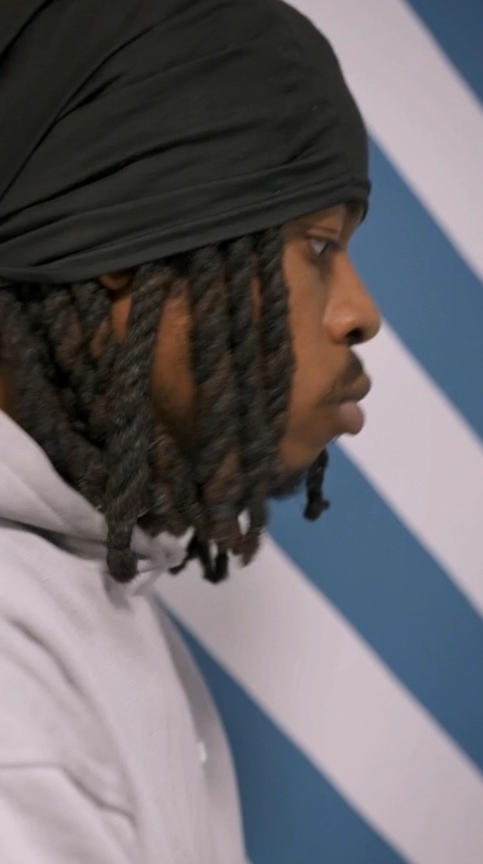
Review of Lewisham Music Project
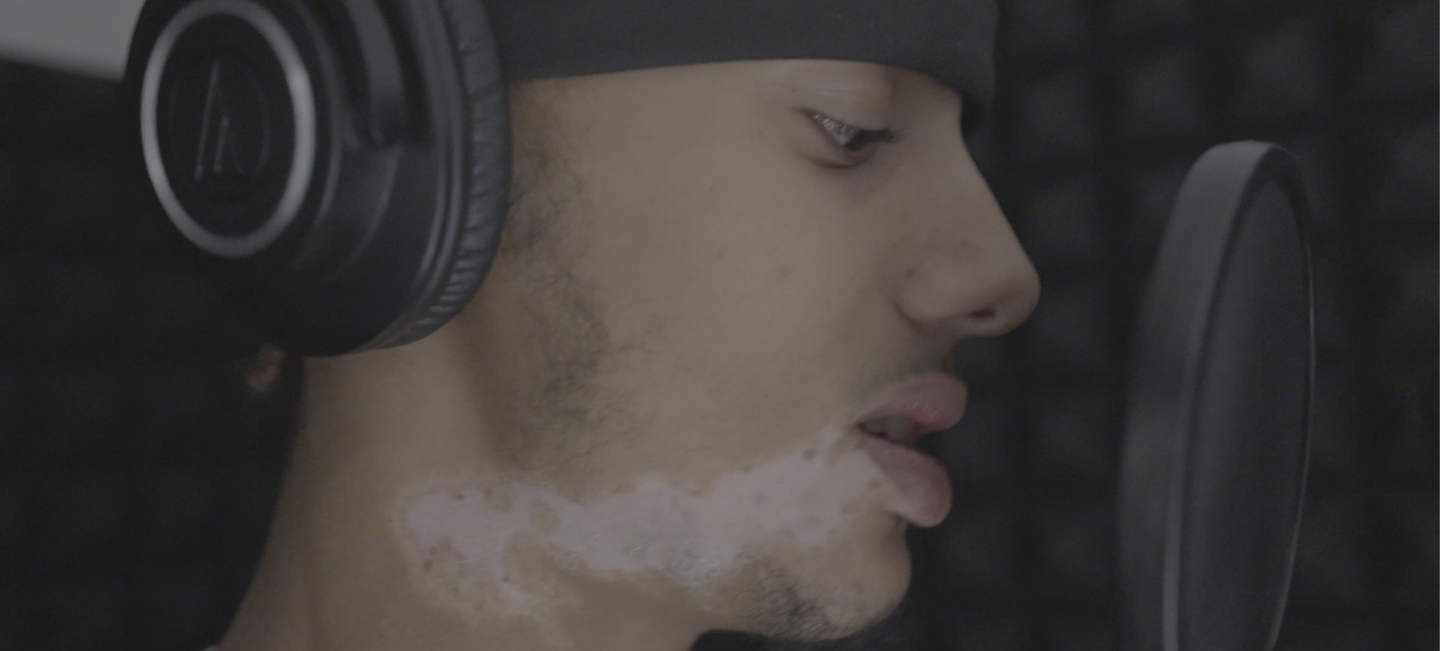
‘Music is power, music is everything’: The value of creative spaces to explore mental health
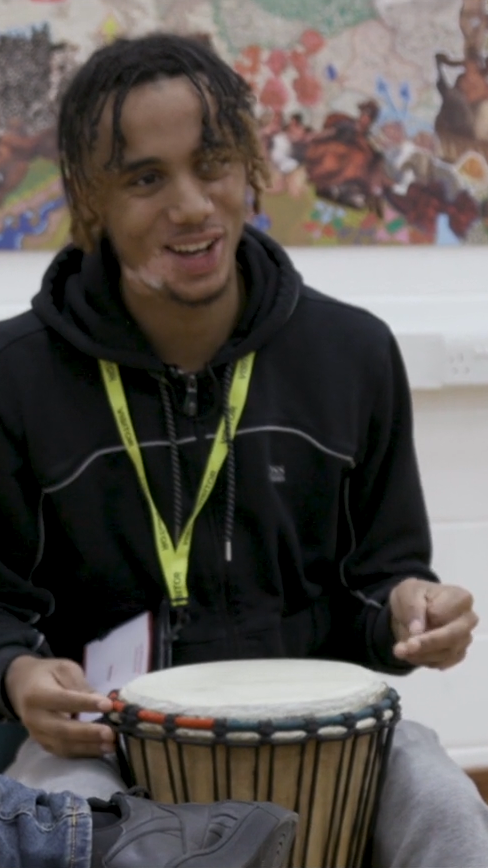
Participants in this programme were wide-eyed about the value of music and the creative industries to the mental health and wellbeing of young people. It was described as a ‘rare form of expression where you can’t be put down for what you create’ which also opens up ‘a different kind of headspace’.
The pair talked about the ability of a single song ‘to change your day’, which they had both personally experienced and reflected that in the context of their own mental health challenges, without music ‘I don’t know where I’d be’. We heard that interventions like this earlier in their own youth might have lessened their own social anxiety.
The championing they had received through the organisation had given them ‘ a space to be heard’ which the pair described as pivotal for the ‘preservation of young people’s mental health’. Music was described as transcending language, cultural differences and personal histories by creating a shared experience. Elsewhere it was described as ‘a healthy release’ for emotions, particularly anger, which they described as a ‘normal’ emotion which is largely fuelled by systemic inequality.
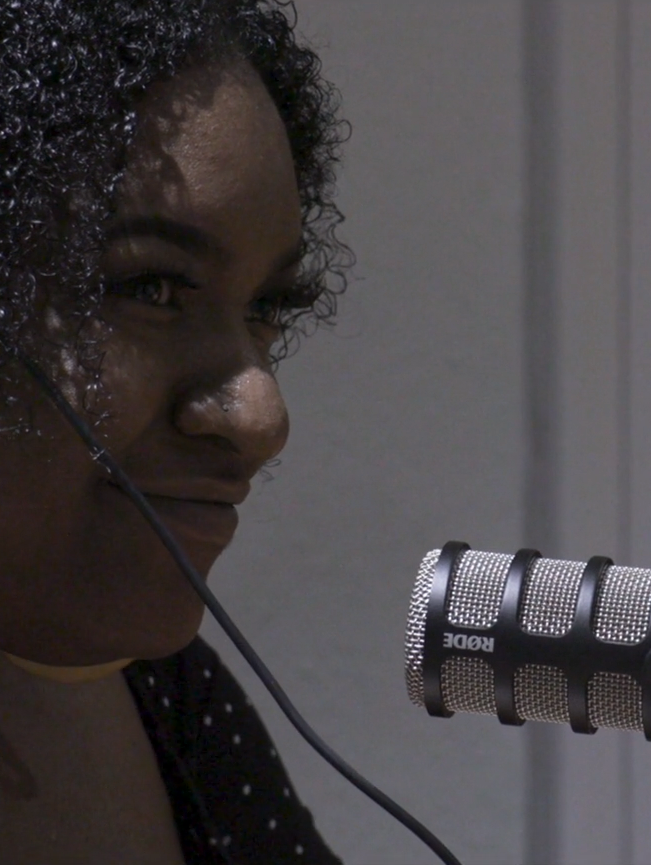
“It does more than enough, but it needs support.”
They shared that in music ‘rage becomes determination and passion…everyone is united and feels comforted that they will overcome their challenges’ with the support of one another. A space to ‘come together’, music allows young people to ‘make sick music’ while ‘bettering each other’ and was described as ‘catharsis’. Young people they had interviewed had reinforced these opinions; they heard from their guests that ‘if I didn’t have this place there’d be nowhere for me to be and let out my creativity…I’d be treated like a weirdo’. The pair felt proud of their ability to normalise both conversations around mental health and a passion.
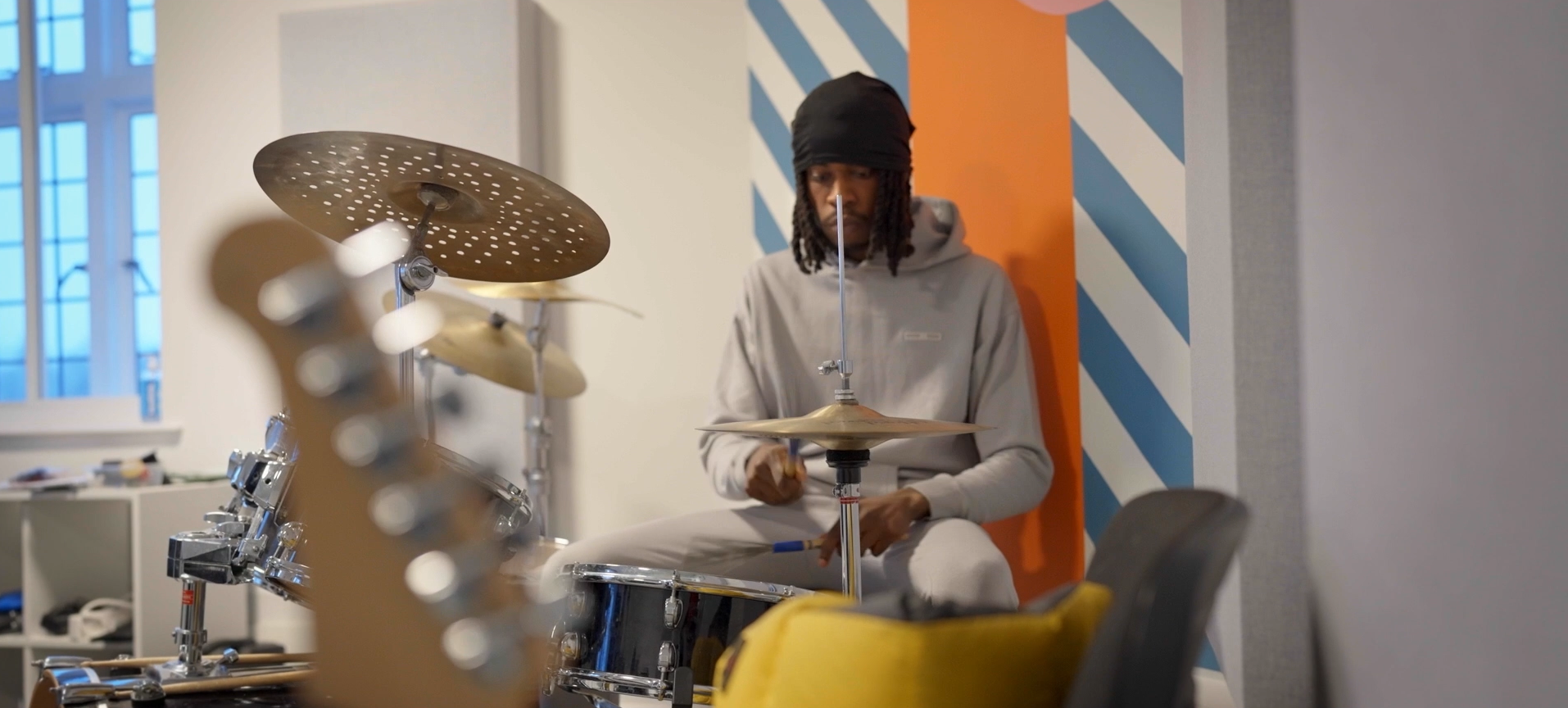
‘Knowing yourself’: Skills development
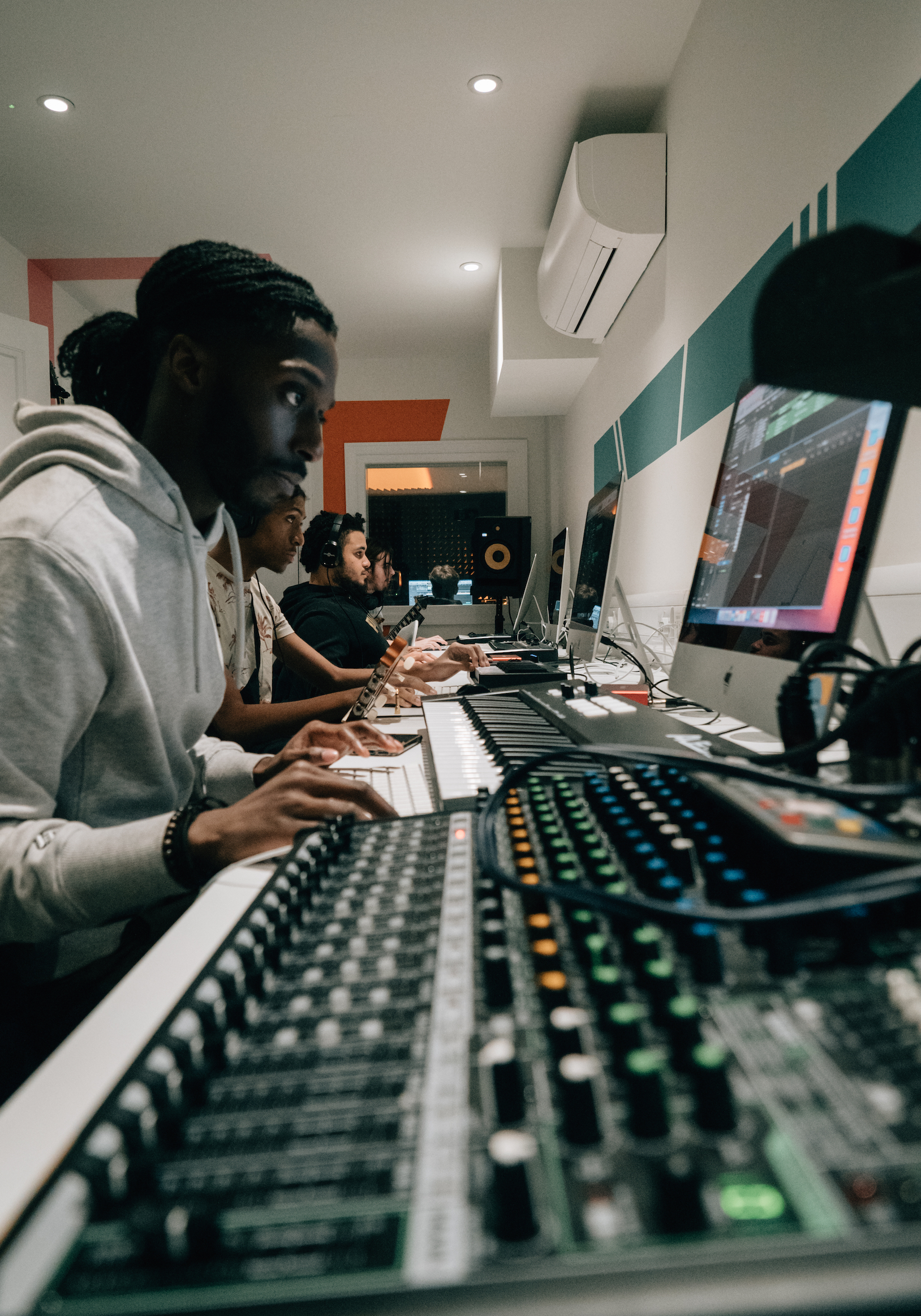
The pair described increased confidence in public speaking, ‘being around people’, ‘talking to strangers’ and ‘letting go’, alongside empathy and managing anxiety. The group were also excited about the potential to continue developing throughout the rest of the programme.
Part of their skills development had come from meeting each other; their different approaches to doing things had been transformational, with one feeling committed to supporting the other to ‘take the next step’. The pair had also enjoyed learning about the processes behind podcasting and the different ways of conducting oneself in the industry, summarised as ‘I’ve learnt a lot’. Floacist had given them reassurance that you can ‘trust your morals and what you can do’, and to ‘have confidence’ in themselves. Floacist was an example that you could ‘stick to your boundaries’.
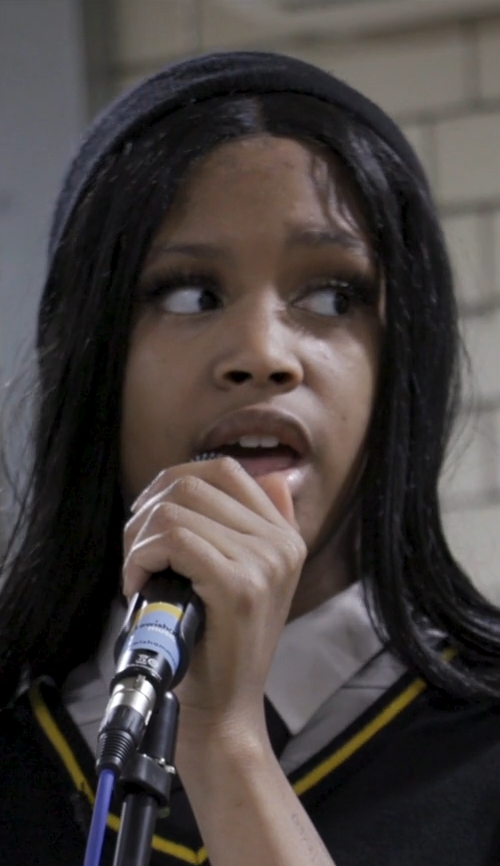
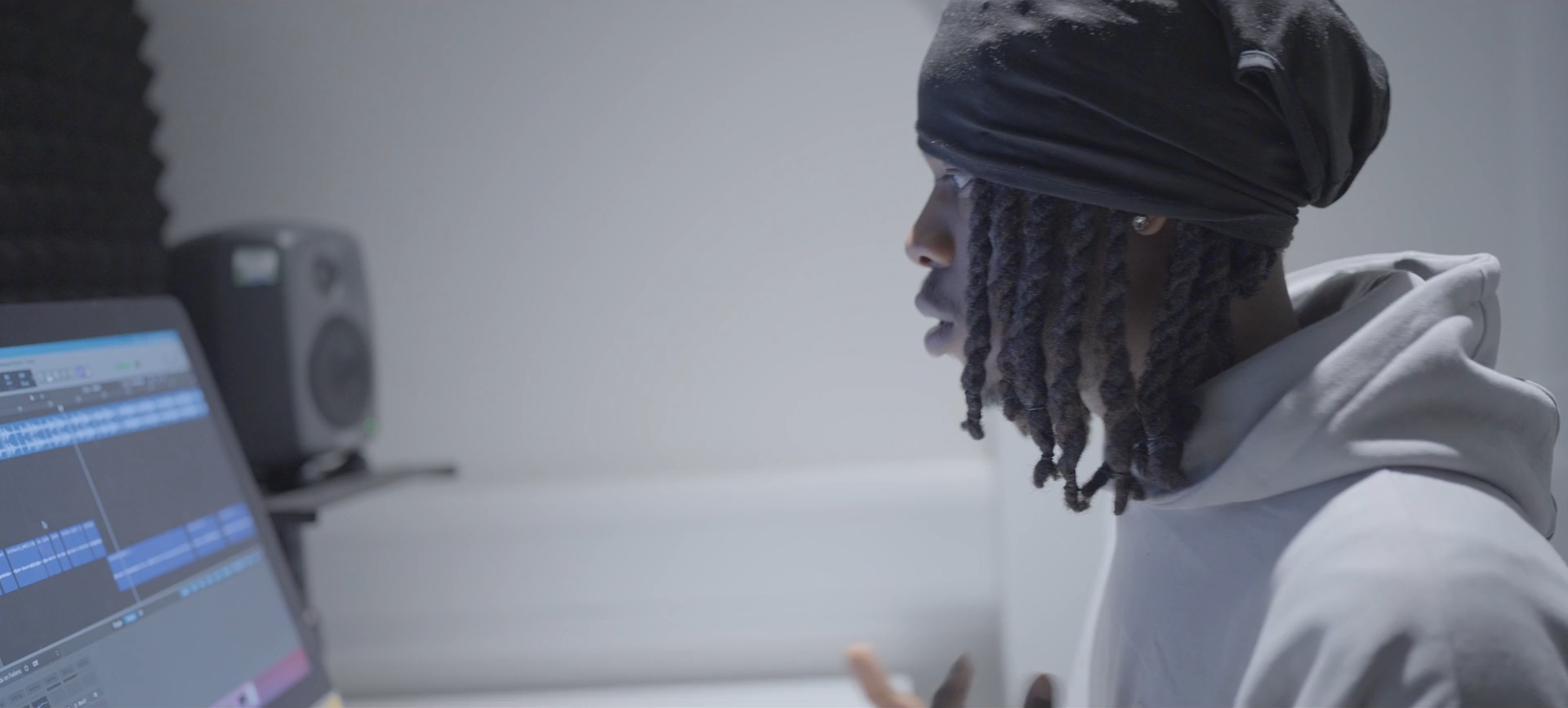
‘It’s an open community’: The value of Lewisham Music
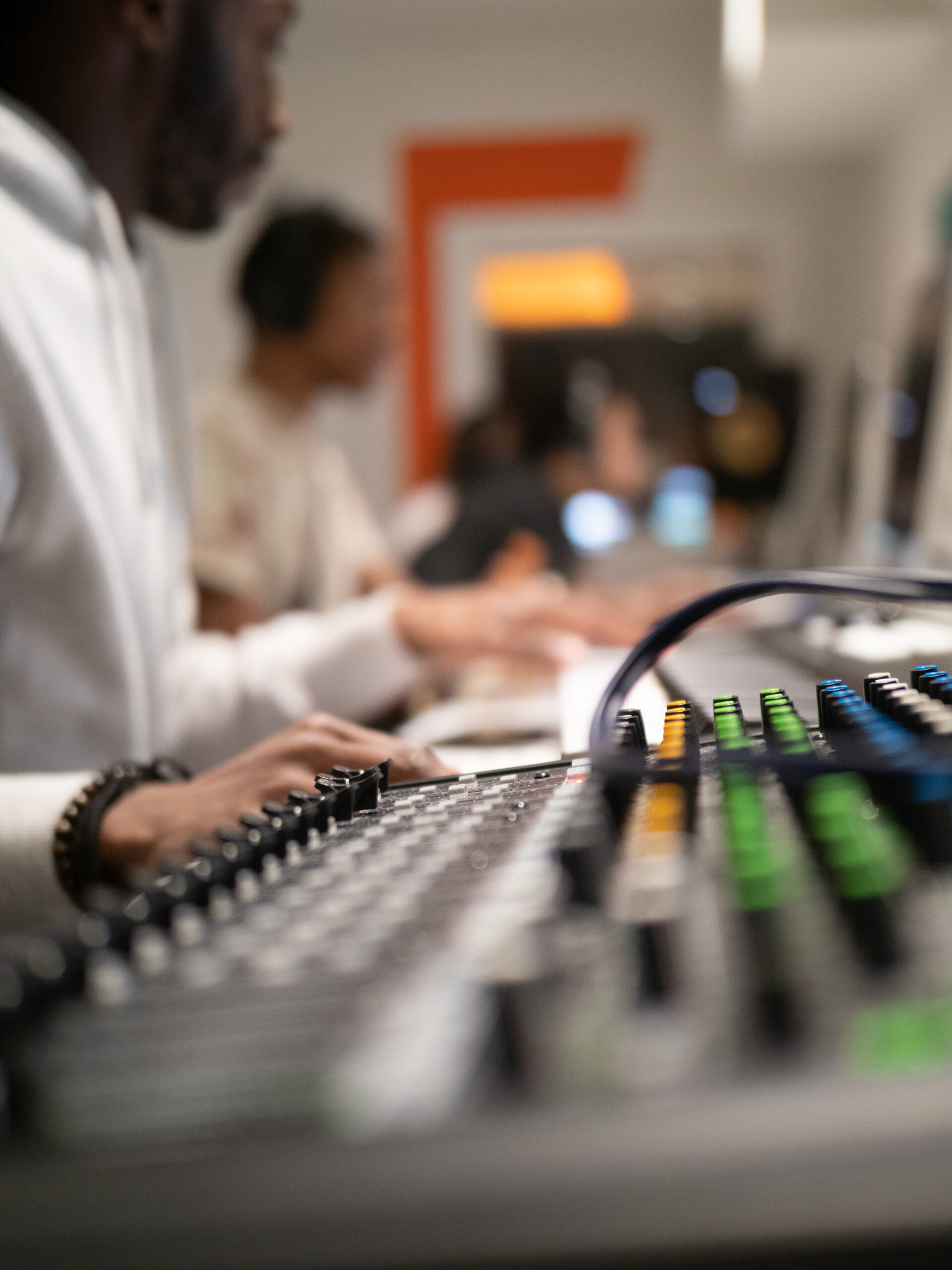
Participants were passionate cheerleaders for the role of Lewisham Music in the community, describing it as a place with ‘no discrimination or prejudice’. Of the staff, the group described that ‘they don’t treat us like young people…we’re learning professionalism, and these are skills that we are learning alongside our passion…we’re not losing anything’. They also reflected that the team had ‘always shown us love’, indicating the importance of the deep personal connections for building trust and empowering young people. One young person said that it was the first time they were taken seriously as a creative, by being paid for their work which ‘meant a lot to me’.
The environment was also described as a safe one owing to the strong wellbeing and safeguarding policies: ‘while people are here they’re safe’, ‘their parents know they’re here’. Meanwhile the breadth of opportunities was celebrated: ‘it’s got everything you need: people that actually care and know what they’re talking about’, with free studio space and support to develop skills. On the value of spaces like this, it was summarised as: ‘more than important.. it can’t be put into words’.
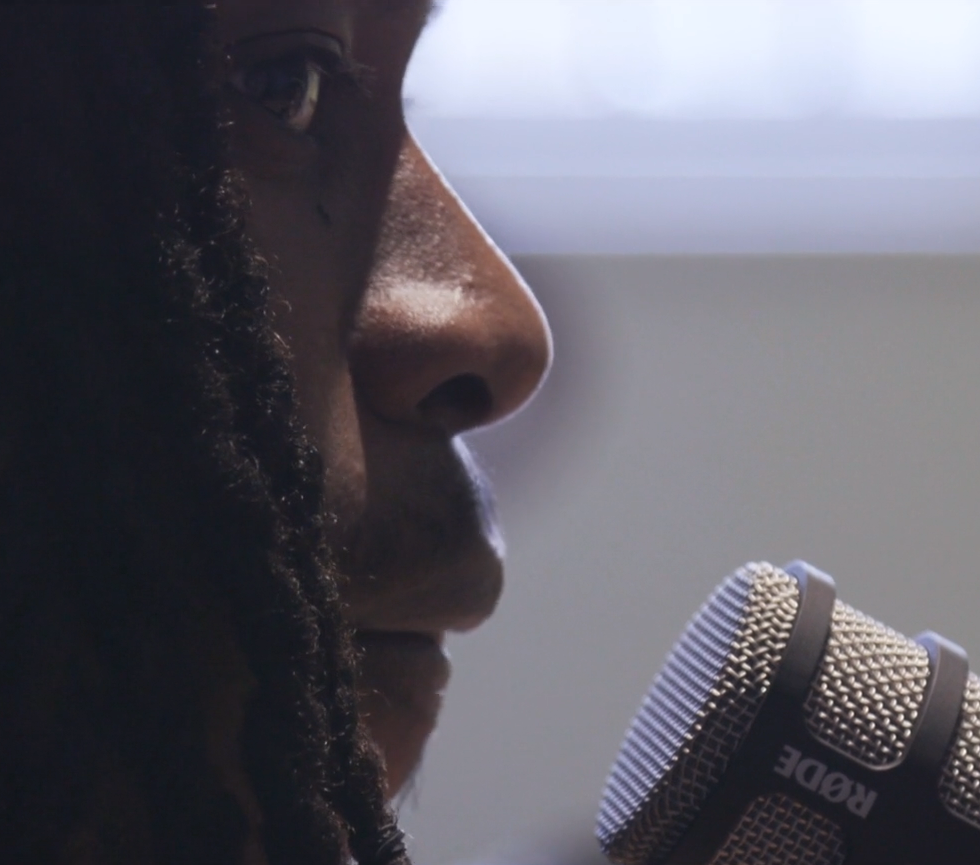
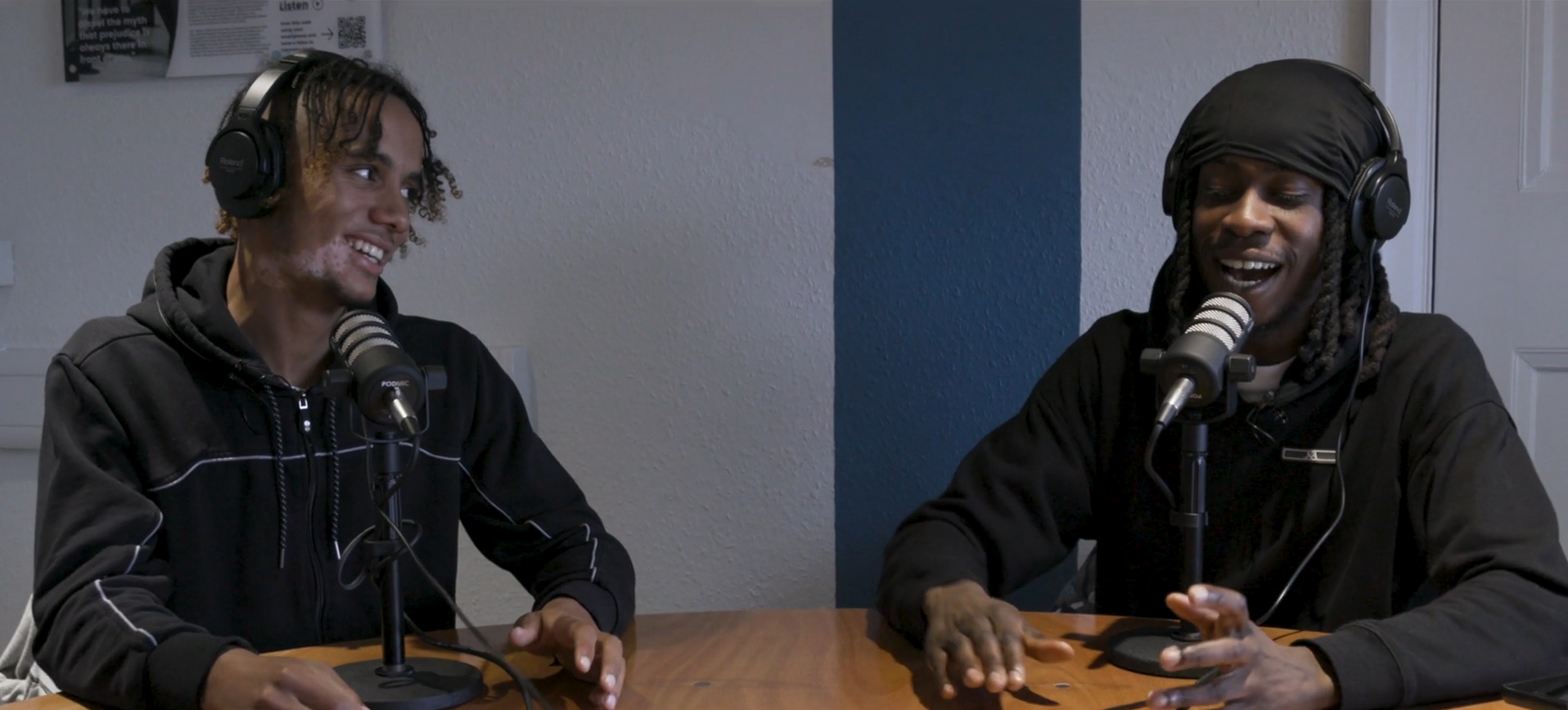
‘Similar motivations for doing things’: Peer sharing and kinship
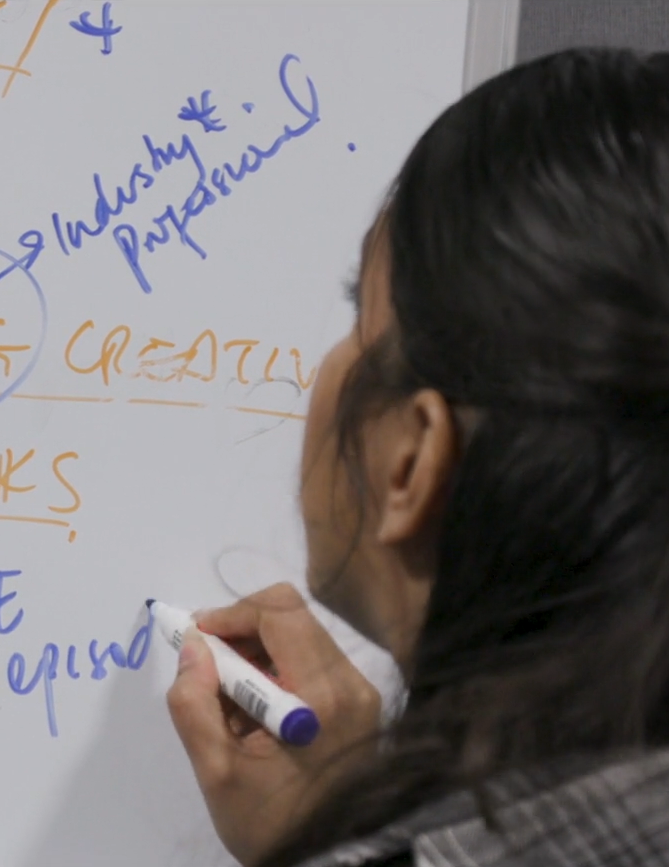
The pair spoke movingly of the value of a shared space where ideas can ‘bounce off each other’ in-person. Music, and most significantly, Lewisham Music, has allowed them to swap references, discover new artists, and make new friends:‘I didn’t know [X] a week ago, now he’s my brother… and that’s through the power of music…’ Music had offered a common bond, and a shared reference point. The pair were ‘excited to be around young people’.
They reflected on feeling ‘supported’ by each other, which was particularly significant given some tough past experiences in the past at school with high levels of social anxiety and a sense of rootlessness. One participant described that Lewisham Music allowed young people to form these relationships’ and ‘build community’, attesting to the significance of this and other spaces. ‘It just brings people together’ was how they described the unifying power of music.
The importance of creative freedom
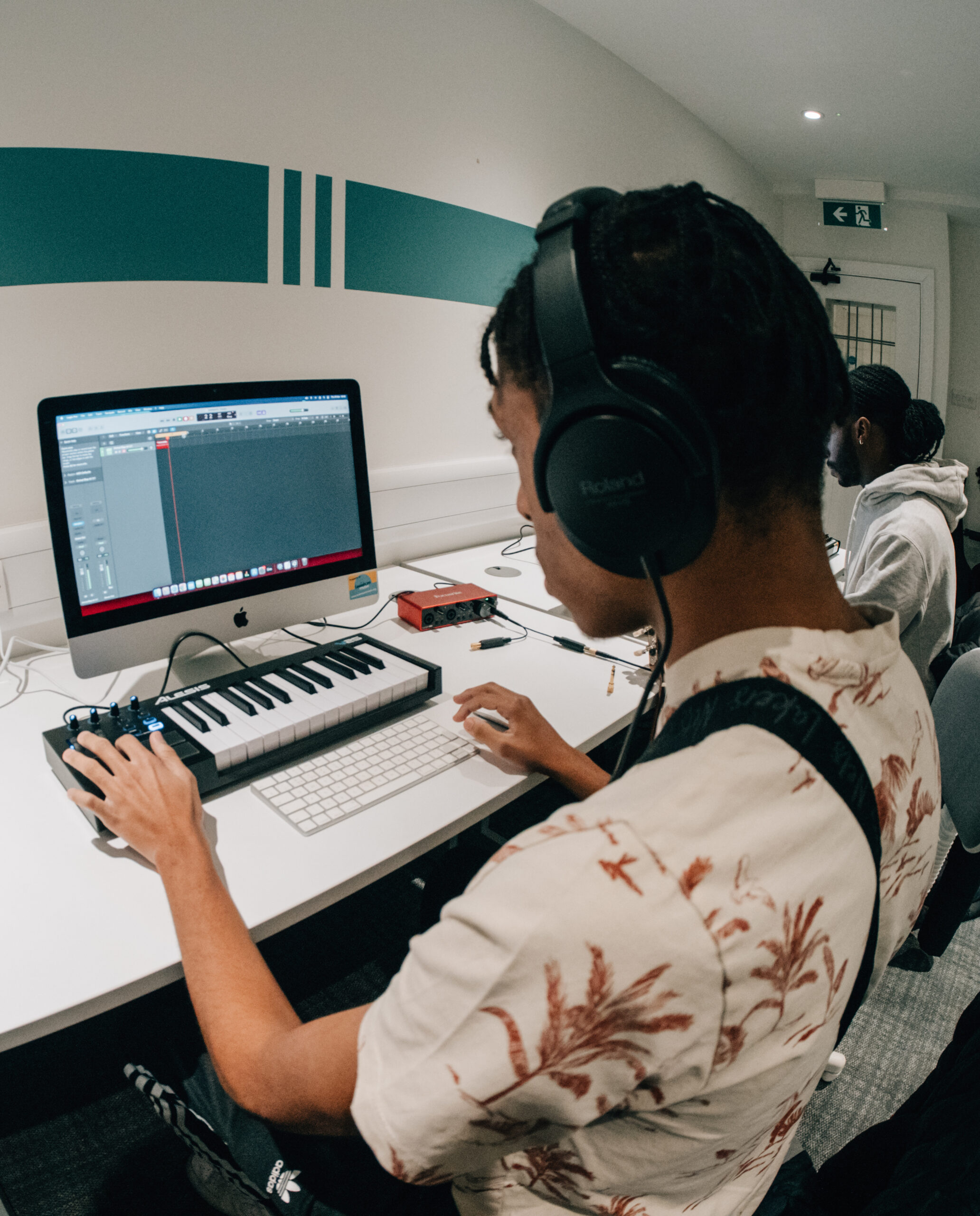
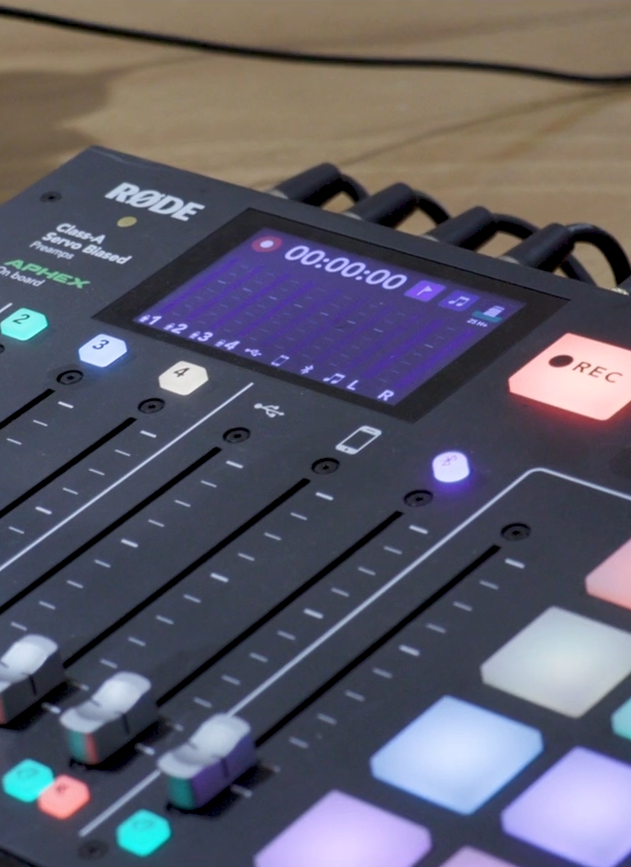
One repeated theme we heard was of the value of the autonomy given to the pair to create something they were truly invested in. The pair shared how empowering (a word that came up regularly) it had been to hear ‘I trust you’ when you are young’ from figures of authority. Creative freedom had also inspired them to embed their values into the production, by giving a platform to other emerging voices.
Integrating artists they are excited by into the podcast allows them to showcase talent that excites them, and extend opportunities to other young people. This had allowed them to make a show ‘not to get numbers’ but to ‘have impact’. Starting a conversation and ‘getting discussion going’ about both cracking the industry and mental health were framed as their priorities, inspiring peers to take action, and hopefully ‘opening up opportunities to get others through the door’. This was an extension of the care they had received through LM, through which they themselves had felt ‘more than blessed’ by the experience.
The pair weren’t desperate for peers to agree with their own perspectives, they wanted to invite instead awareness and encourage conversation. With this podcast they believed they were showing that their skills are ‘adding value’ to someone else, without selfish motivation or personal gain: ‘part of our legacy of being on this earth is that we were part of this podcast…we put in this work and we showcased this to the world. No matter how many views or listeners it gets, we’ve done that. You can’t take that from us. It touched somebody… it’s gonna touch somebody.’
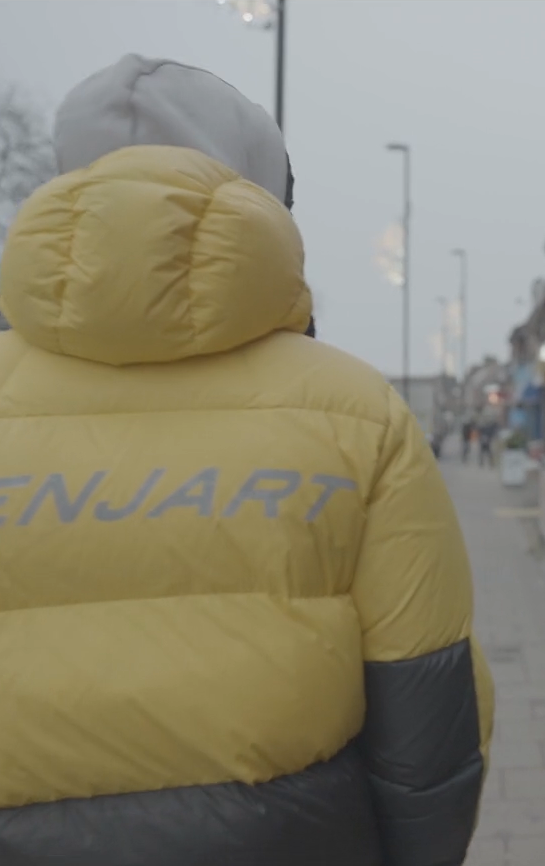
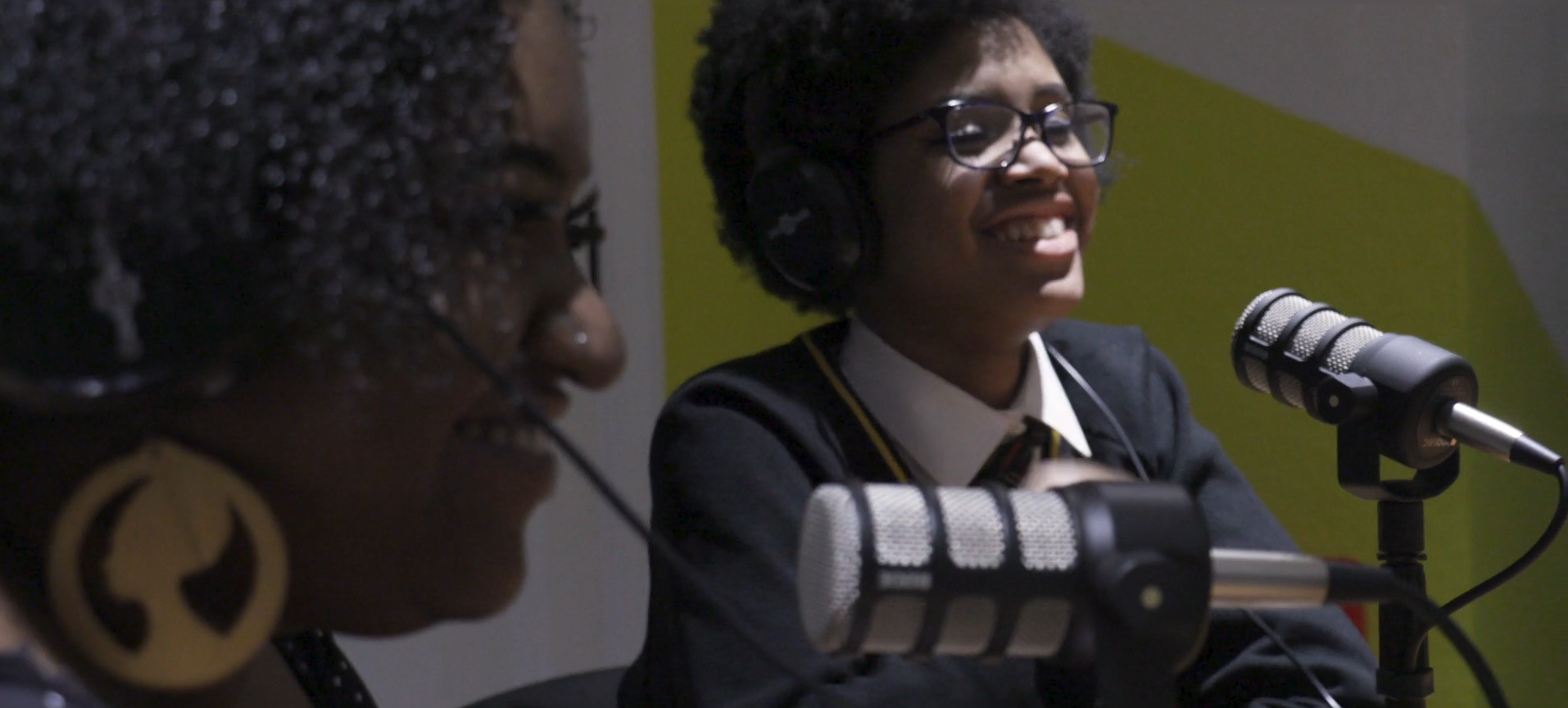
‘We need more of it’: Democratising access and the case for support
Participants shared that ‘Lewisham Music does more than enough’ through its efforts to enrich the lives of young people in the area. One participant shared that ‘these places don’t come once in a lifetime but they should!’, and that had the same opportunities existed in their youth ‘they would have ‘travelled from Peckham every day ‘easily…where has this been my whole life?’. The organisation was described as ‘inspiring’ and ‘eye-opening’, with participants happy to advocate for its value in their lives: ‘I tell everyone about Lewisham Music’. The organisation was described as ‘changing people’s lives’ and extending its reach far beyond just music through its skills development programmes, safe and welcoming environment, and fun atmosphere.
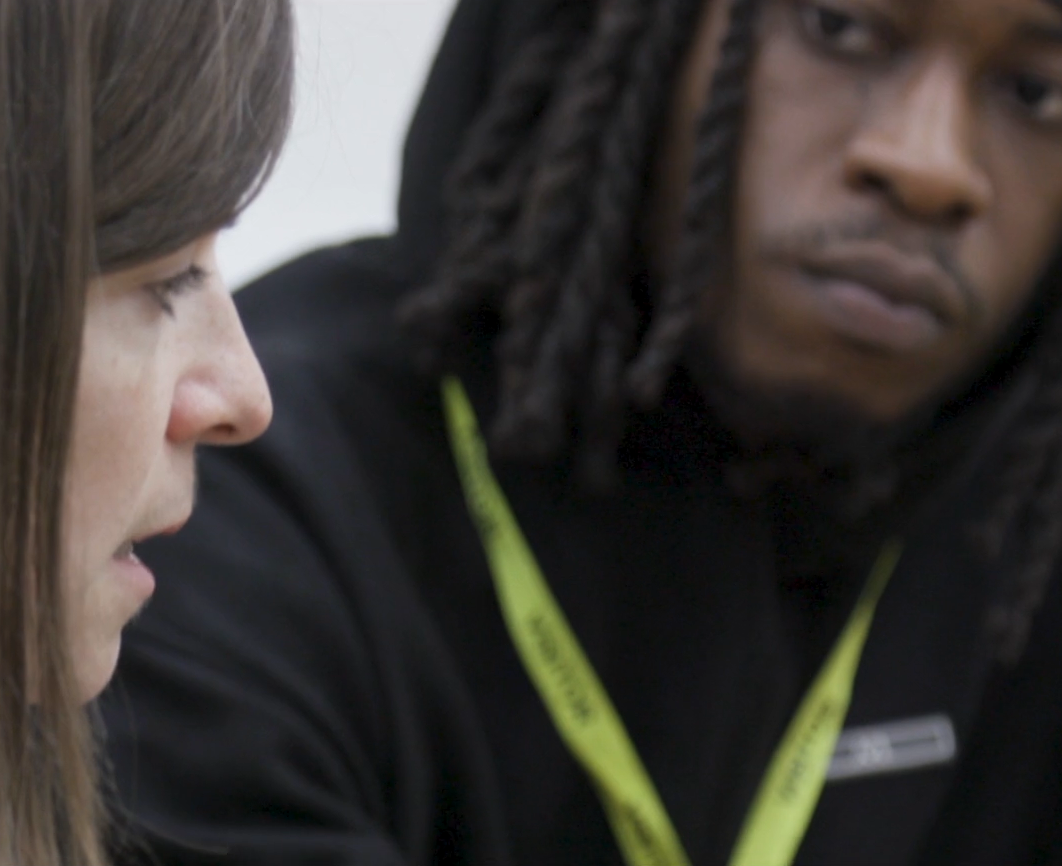
Participants flagged financial barriers to creative participation and the way that access is ‘blocked’ by money, instead pushing many young people towards ‘directions they don’t want to go in’ which can be unfulfilling, under stimulating and even dangerous.
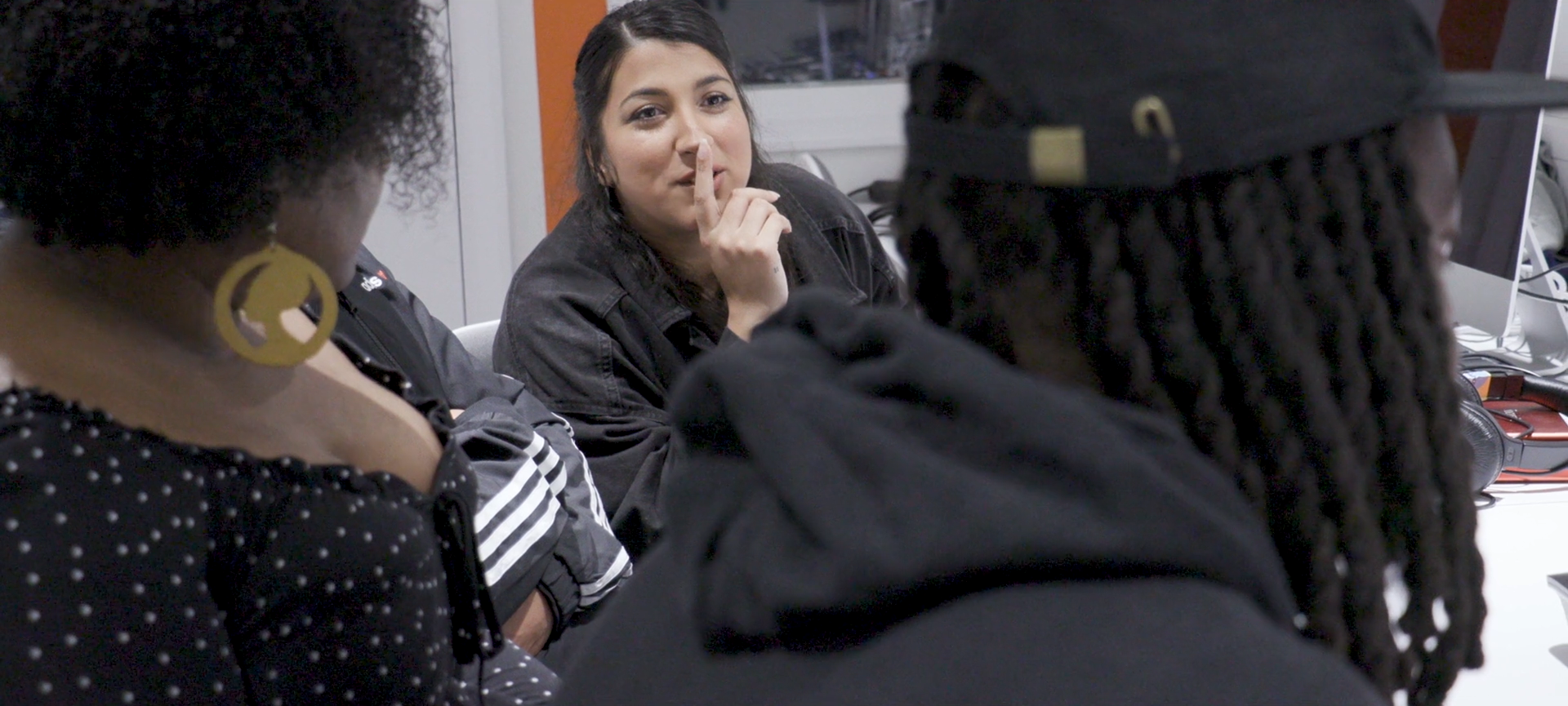
‘I want to do more of this’: What will they do differently?
When asked this question the group responded with reflections that attested to both personal and political changes they would like to manifest, from the confidence to ‘never undervalue myself or sell myself short’ to working more with young people and being ‘in the moment more’. The pair both feeling decisive that music is what they want to do, demonstrating the value of this space to inform career decisions, and keep them motivated.
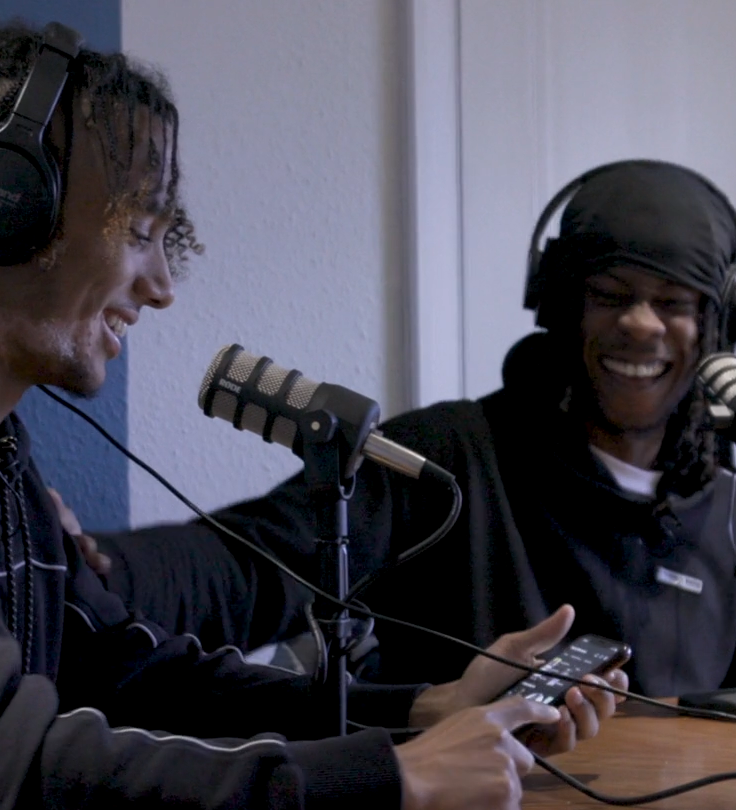
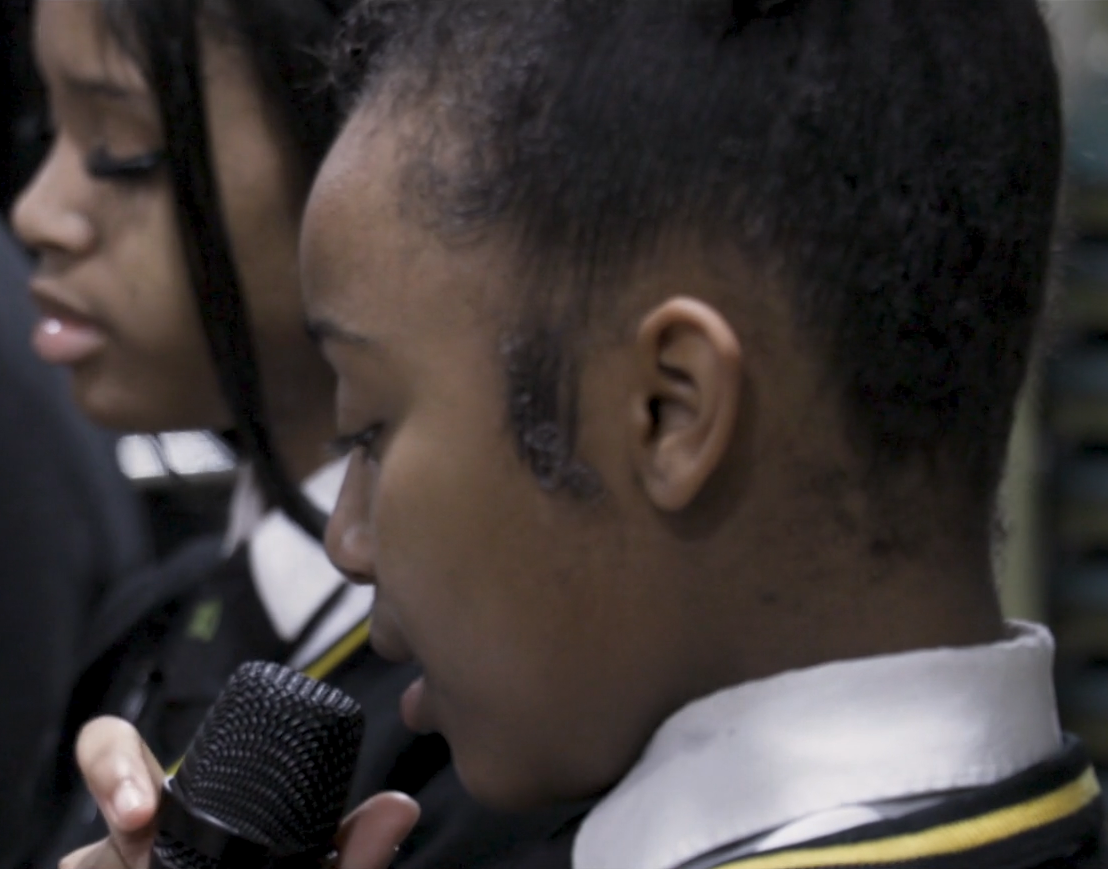
Meeting Floacist was described as a life changing moment, with her ‘majestic aura’, insights and openhearted approach to sharing her reflections. They felt ‘treated like a peer’ by her, which helped legitimate their own sense of self within the music industry.
Tangible role models: a career path made visible
The pair also described the value of seeing local artists succeed: ‘we need more Novelists, more Hannah Kendalls’. These examples defined success to the pair: ‘he came from where I came from; the same trenches, the same roads, the same troubles..and look what he’s charted’. This made them feel their own dreams were legitimate, and more importantly, possible.
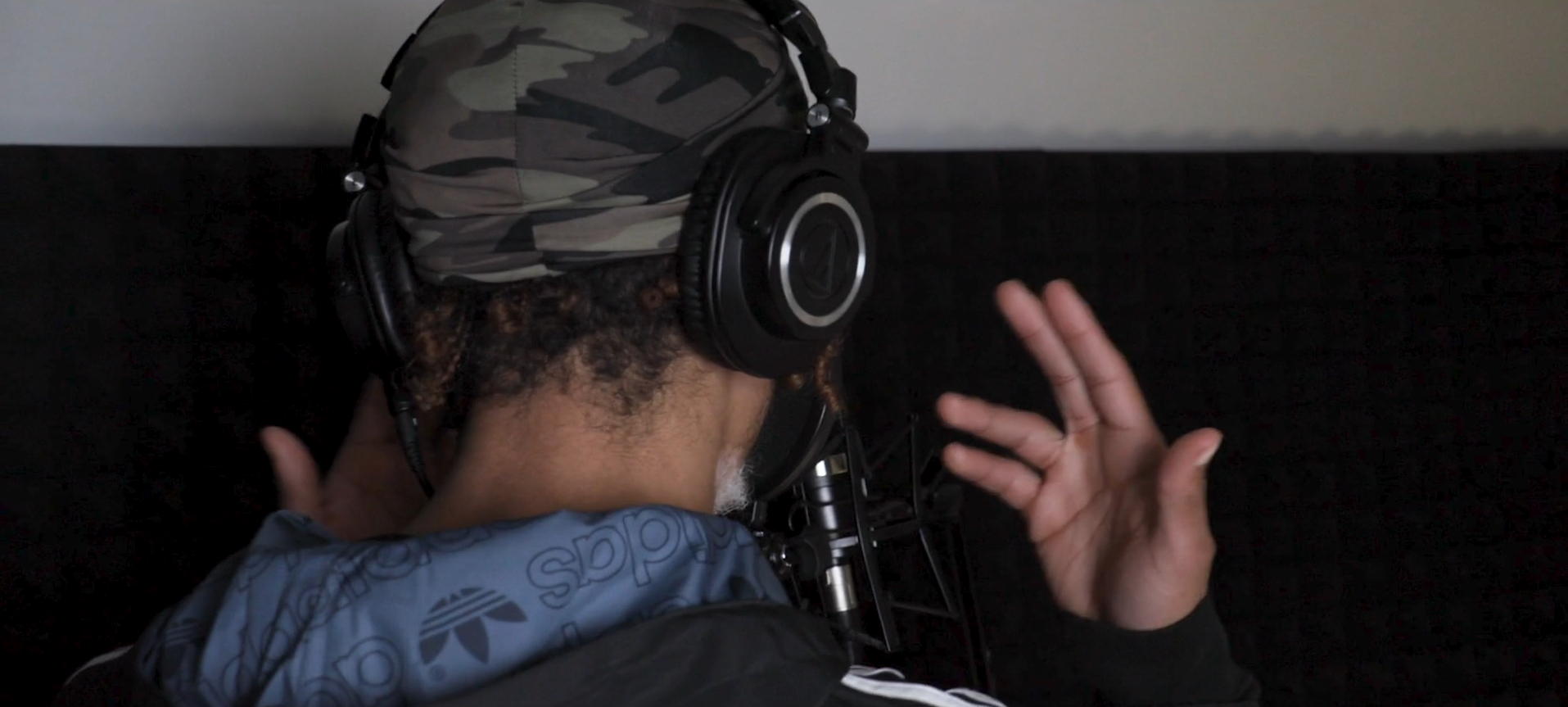
‘It’s not rocket science’: art and society:
This group, as with all others we spoke to, were passionate about the role of young people in society, and the need to extend opportunities to their peers: ‘I hope there’s opportunities and spaces not just for me but for other young people’. They were hopeful about the future, and the role of their peers, but felt concerned that this optimism wasn’t being mirrored in the way they as a group are positioned in society: ‘they’re going to be the future politicians so we need to make sure their mental health is good now..’ which they didn’t feel was the case: ‘if you want the future to be good, this is one of the places you need to invest..not the only place, but one of the best’.
Music was seen as a place to rework lazy stereotypes of their generation, going as far as saying that music is a ‘political weapon’ that is ‘underestimated’. The pair described that society was still not responding to the fact that a lot of young people were ‘unhappy’ with their personal circumstances, which was leading to the feelings of frustration often being misattributed as the cause – not the result – of civic unrest.
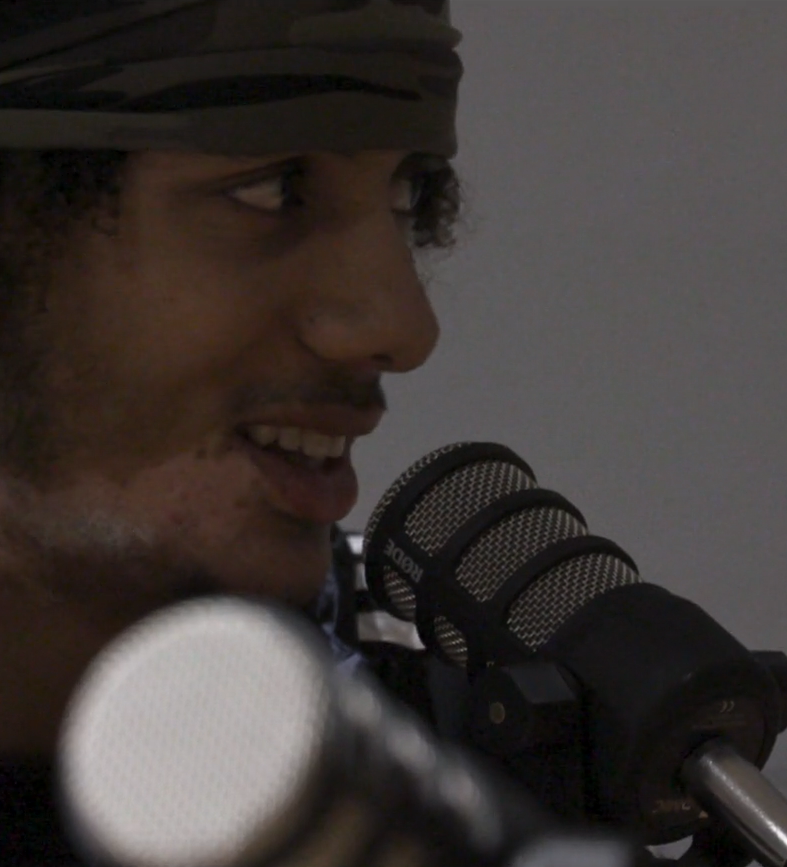
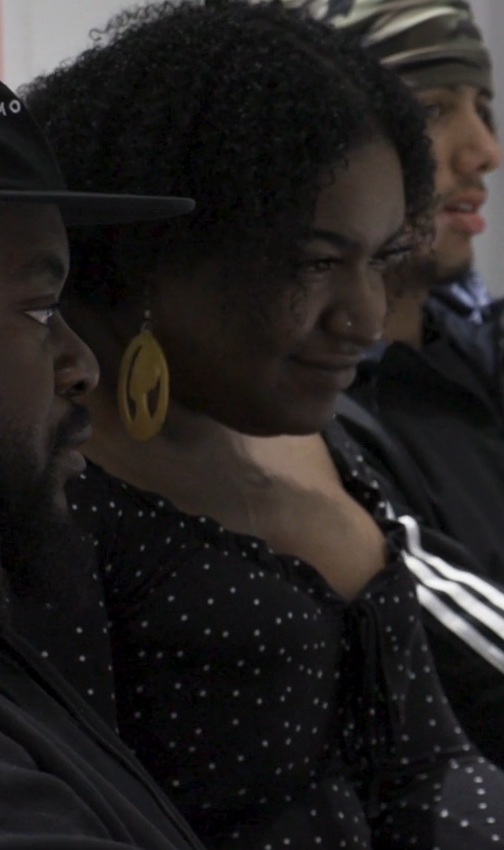
Investment in creative opportunities, they felt, were the key to reducing the ‘chaos’ and ‘nonsense’ of some public behaviour, with one participant sharing ‘if you created more opportunities I guarantee it wouldn’t be as mad as it is on the streets.. those young people would be making music rather than beefing each other, they’d be working together in a space like this. It’s not rocket science’. The pair made comparisons to countries such as Nigeria where they saw creativity being nurtured and cultivated, sharing that it is on the government to make a change. because ‘spaces like Lewisham Music are what is needed in society.
What next for participants?
During the sessions participants shared what they will do as a result of taking part in A Big Conversation. Many are excited about flexing their creative muscles even further, creating space to bring more young people into the conversation around creativity and mental health and celebrating their own achievements and personal development.
